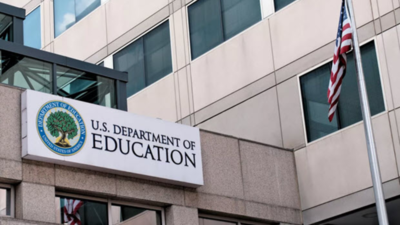The US Department of Education has announced the release of $1.3 billion in federal funding earmarked for after-school and summer programs, bringing partial relief to school districts and nonprofit organisations across the country. The decision follows mounting political pressure from Republican lawmakers and a legal challenge launched by more than 20 states against the Trump administration’s controversial freeze on more than $6 billion in federal education grants.The released amount pertains to the 21st Century Community Learning Centres (CCLC) program, which supports before-school, after-school, and summer enrichment activities, especially in underserved and low-income areas. These programs had been abruptly stalled after the administration initiated a spending review on July 1 to assess whether the grants aligned with federal priorities.
What the funding supports
The 21st Century CCLC program has long been a key federal initiative designed to provide safe, structured learning opportunities outside regular school hours. It serves millions of children nationwide, especially those from working-class families who depend on free programming for child care, homework help, and enrichment in STEM, arts, and literacy.Beyond academics, the centres also serve as community hubs—offering meals, counselling, and recreation. In many rural and economically marginalised communities, they are the only structured options available to families after school.The $1.3 billion now being released will allow these programs to proceed with hiring, contracts, and scheduling for the 2025–26 academic year. However, many organisations report having already faced severe setbacks, including the loss of staff, cancellation of summer initiatives, and withdrawal of enrolled students due to uncertainty.
Delay triggers nationwide disruption
The decision to withhold funding came without prior notice, catching states and districts off guard during a critical planning period. As schools and nonprofits scrambled to adjust budgets and operations, many were forced to cancel fall programming, halt hiring processes, and cut back on planned services.Administrators in several states reported that the two-week delay led to furloughs, reduced staffing for the summer term, and delays in opening registrations for the fall. Some rural and inner-city programs, where budgets operate on razor-thin margins, have already experienced lasting damage.Education advocacy organisations said the temporary freeze had real-world consequences for vulnerable children and families who rely on these services for both academic support and basic care.
States push back: Lawsuit filed over $6 billion freeze
While the administration’s review of the 21st Century program is now complete, approximately $5 billion in additional education funding remains frozen. These include grants for adult literacy, English as a Second Language (ESL) instruction, teacher training, and other state-administered initiatives.On Monday, a coalition of more than 20 states, led by California, filed a federal lawsuit challenging the legality of the funding freeze. The states argue that the money was already approved by Congress and signed into law by President Trump earlier this year, and that withholding it unilaterally violates both constitutional and administrative protocols.The suit also asserts that delaying these funds threatens public education systems, especially in high-poverty districts, and undermines bipartisan efforts to improve literacy, language access, and adult education outcomes.
Political pushback from Republican senators
Adding to the pressure, 10 Republican senators, led by Sen. Shelley Moore Capito of West Virginia, sent a letter to the Office of Management and Budget (OMB) urging the administration to lift the freeze. The senators emphasised that the affected programs enjoy longstanding bipartisan support and are critical for communities in both red and blue states.The letter clarified that while lawmakers are aligned with the administration’s efforts to prevent misuse of federal funds, there is no indication that these particular grants are being used inappropriately or to advance political agendas.Several of the letter’s signatories serve on education-related committees and expressed concern that the freeze undermines local control of education—an issue frequently championed by conservative leaders.
Education groups demand immediate action
Education policy experts, school administrators, and nonprofit coalitions have called on the White House to expedite the release of the remaining funds. The AASA (School Superintendents Association) warned that continued delays would lead to staffing cuts, halted adult education programs, and reduced ESL services, just as schools are preparing for the new academic year.These programs often support recent immigrants, job seekers, and parents returning to the workforce—groups that are already vulnerable and have fewer alternatives. With school budgets already strained due to inflation and rising operational costs, federal funding plays a crucial role in keeping these services afloat.As of now, there is no confirmed timeline from the Office of Management and Budget on when the rest of the education funds will be released. School districts continue to navigate uncertain conditions, with many fearing they will have to make staffing and programming decisions without clarity on federal support.
Funding future still undecided
While the release of $1.3 billion is a relief for many after-school programs, the broader issue of federal interference in already-appropriated funds has raised concerns across the education sector. Many see the freeze—and the method by which it was implemented—as a dangerous precedent that could impact future grant cycles.Educators, lawmakers, and community leaders alike are watching closely to see how and when the administration resolves the remaining $5 billion freeze. For now, schools are being asked to plan for the academic year with limited certainty—placing crucial programs, jobs, and student services at continued risk.TOI Education is on WhatsApp now. Follow us here.






